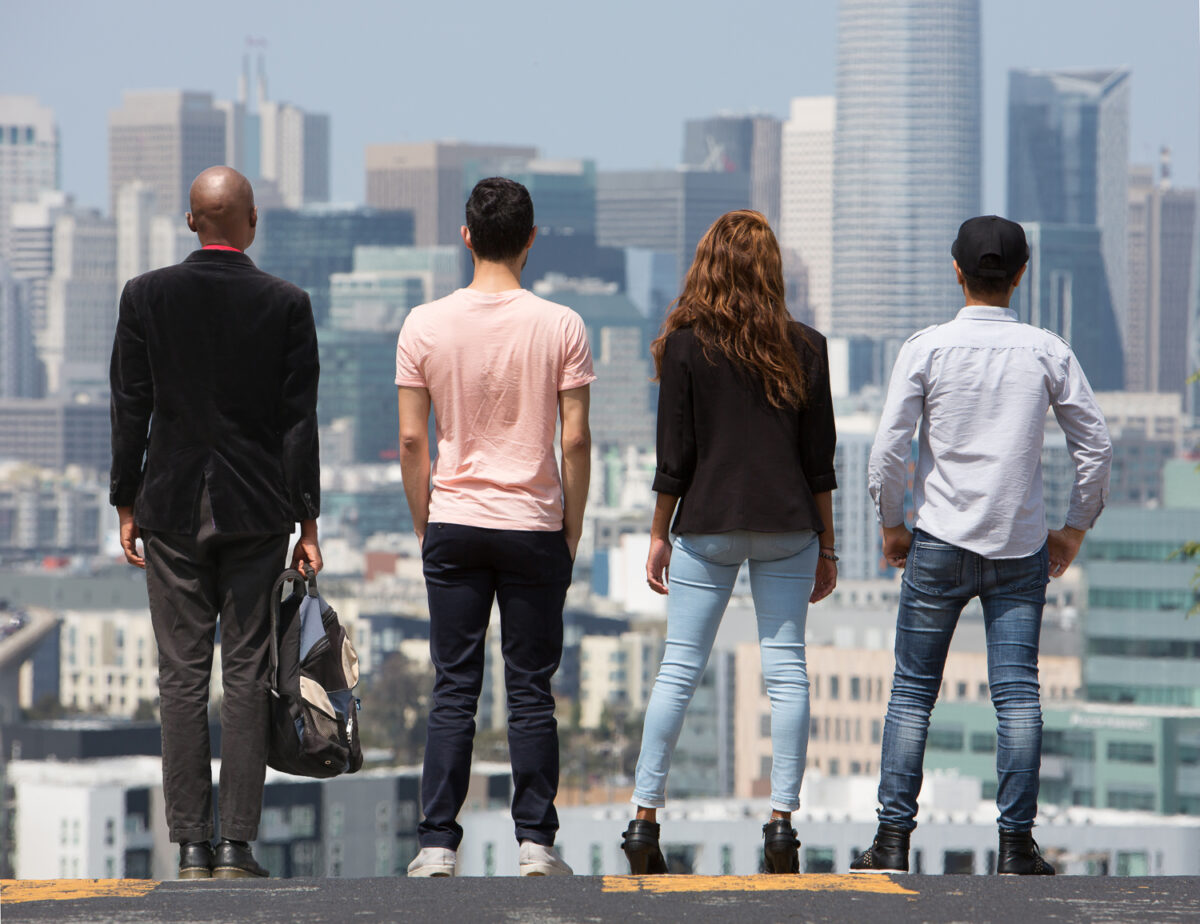
Tom Shepard started his excellent and unsettling documentary about the plight of a handful of LGBT refugees in what we now wistfully call the ‘good old days’ i.e. pre 2016. Up to then this country stood by its centuries old policy of giving refugee to all those in need. In fact Shepard points out at the beginning of this documentary that half the population of the USA were born into immigrant families.. Including the present President (and The First Lady) even though he has single-handedly done more than anyone in history to deny wholesale entry to so many refugees and asylum seekers and literally passing a death sentence on so many of them.
 Luckily one of Shepard’s subjects Subhi Nahas a gay Syrian man made it to the US asa UN sponsored refugee in 2015. Although it seems really inappropriate to use the word ‘lucky’, as Nahas’s village had been overrun by militia group who terrorized all the locals including the kidnapping and killing of gay men. Life at home was no better as his father beat him to such a pulp one day that Nahas ended up in Hospital a bloody mess.
Luckily one of Shepard’s subjects Subhi Nahas a gay Syrian man made it to the US asa UN sponsored refugee in 2015. Although it seems really inappropriate to use the word ‘lucky’, as Nahas’s village had been overrun by militia group who terrorized all the locals including the kidnapping and killing of gay men. Life at home was no better as his father beat him to such a pulp one day that Nahas ended up in Hospital a bloody mess.
He fled to Lebanon, then Turkey but once there he received daily death threats from ISIS, which were serious enough for the UN to fasttrack his refugee status.
With most of the refugees once they land in the US their lives may no longer in danger but the struggle to survive on a daily basis is still very real indeed. The articulate Nahas fared better than most having being invited to speak at the UN General Assembly on the plight of LGBT refugees which propelled him into the role of motivational speaker and also an LGBTQ activist. Very few asylum seekers like Nahas end up with a major Community Award or being the Grand Marshal of Gay prides, but even that can never totally overcome the sense of being totally estranged from his entire family.
 On the other hand Cheyenne Ardiano and Mari N’Timansieme had been together over 10 years and were forced from Angola after facing intense harassment. Neighbors kept cutting the power off and had killed their dog, and even their Aunt had poisoned their food. Unable to get refugee status the entered the US on Student Visas and began a three year process to apply for asylum in California. Unable to work all that time, they only survived on the charity of others, including their pro-bono lawyer. However, they had such a compelling case that theirs was one of only a handful of cases that actually succeeded,
On the other hand Cheyenne Ardiano and Mari N’Timansieme had been together over 10 years and were forced from Angola after facing intense harassment. Neighbors kept cutting the power off and had killed their dog, and even their Aunt had poisoned their food. Unable to get refugee status the entered the US on Student Visas and began a three year process to apply for asylum in California. Unable to work all that time, they only survived on the charity of others, including their pro-bono lawyer. However, they had such a compelling case that theirs was one of only a handful of cases that actually succeeded,
Meanwhile a very young Junior Mayema was lucky enough to gain the precious UN refugee status in South Africa where he had fled to from his home in Congo. Once there he found that the harassment and bullying was even worse, ending with him being beaten up badly actually in a police station
Met by refugee sponsors when he arrived in SF he really struggled so much to settle in, not helped by the fact he had to move 10 times that first year.
Stoppard’s cameras followed Mayema on and off for four years during which he slept rough on the streets and also moved in with two different older boyfriends which were clearly fated not to last. Often in total despair and very depressed, he most of all, was shocked how very tough and lonely his new life was. However his story at least ends on a high note, now living in public housing and studying to be a paralegal at Community College.
Shepard allows the three stories to unfold without comment other than to note that the number of refugees accepted into this country last year was the lowest ever. The visuals alone are enough for us to be reminded so vividly how far low the US has sunk by downrightly refusing to providing these needy and desperate the safe haven they need purely to survive.
Unsettled has a very powerful and heartfelt message that so needs to shared with the largest audience it deserves.
P.S. Check http://www.unsettled.film/ for both details of where the film is screened next AND also how you can get involved in helping settle queer refugees

